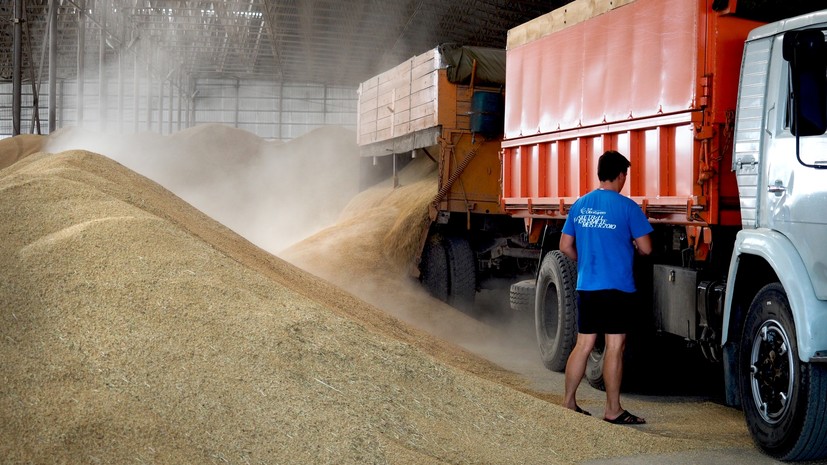Russia is ready to supply grain to countries in need and completely replace Ukrainian products, said Oleg Ozerov, Ambassador-at-Large of the Russian Foreign Ministry, head of the secretariat of the Russia-Africa Partnership Forum.
He stated that the issues of ensuring the food and energy security of Africa are the most important on the current agenda of Russia.
The diplomat noted that Russia is ready to responsibly and conscientiously fulfill its obligations under international contracts regarding the export of agricultural products, fertilizers, energy carriers and other critical products, despite the opposition of European regulators.
“Today, taking into account the record harvest of 2022 of 152.2 million tons, we are ready to supply Russian grain to the most needy countries free of charge (500 thousand tons), as well as completely replace Ukrainian grain, which makes up only 2% of world production, at affordable prices to all interested countries," a spokesman for the Foreign Ministry said.
Recall that the agreement on food exports, known as the grain deal, was concluded on July 22 in Istanbul.
The agreement, to which Russia, Ukraine, Turkey and the UN became parties, consisted of two documents.
One of them spoke about the obligations of the UN to lift restrictions on the export of Russian agricultural products and fertilizers to world markets, and the second one prescribed an algorithm for the export of Ukrainian agricultural products from the Black Sea ports controlled by Kyiv along the humanitarian corridor.
As soon after the signing of the document, UN Secretary General António Guterres stated that the export of Ukrainian agricultural products would help stabilize the rapidly rising food prices in the world.
However, soon after the passage of the first vessel under the grain deal, which took place on August 1, the Russian side had questions about compliance with the agreements.
Later, Vladimir Putin drew attention to this, speaking at the plenary session of the Eastern Economic Forum on September 7.
As the president noted, a significant part of the grain was sent not to the poorest countries, but to the European Union.
Putin cited data according to which at that time only two ships out of 87 were loaded under the UN World Food Program, which implies assistance to the most needy countries.
Also on russian.rt.com Food blackmail: how Western countries and Ukraine discredited and disrupted the grain deal
As the president noted, "many European countries in previous decades and centuries acted as colonizers, and continue to act today."
According to Putin, if the current trend continues, the scale of food problems in the world will only increase.
At the end of October, Putin also spoke about the problem of restrictions and bans on Russian fertilizers in Europe.
The President recalled that about 300 thousand tons of fertilizers were arrested in European ports, which the Russian side is ready to give to African countries for free, but there is no such possibility.
Subsequently, the Russian Foreign Ministry also drew attention to the process of implementing the grain deal.
The diplomatic department noted that the geography of recipients of food consignments did not correspond to the initially declared humanitarian goals, since half of all deliveries fell on the European Union, Great Britain, Israel and South Korea.
According to the Ministry of Foreign Affairs, the countries in need, including Somalia, Ethiopia, Yemen, Sudan and Afghanistan, received only 3% of food.
The ministry also spoke again about the problem of fertilizer supplies blocked in Europe.
As specified in the Ministry of Foreign Affairs, these cargoes were blocked mainly in the warehouses of Latvia (80%), Estonia, Belgium and the Netherlands, whose authorities do not allow their shipment through the UN WFP.
The reason for this, the department noted, was the unilateral sanctions of the West.
The Foreign Ministry stated that the US and the EU "in fact, punish the countries of Africa, Asia and Latin America, preventing the access of Russian agricultural products and fertilizers to world markets."

